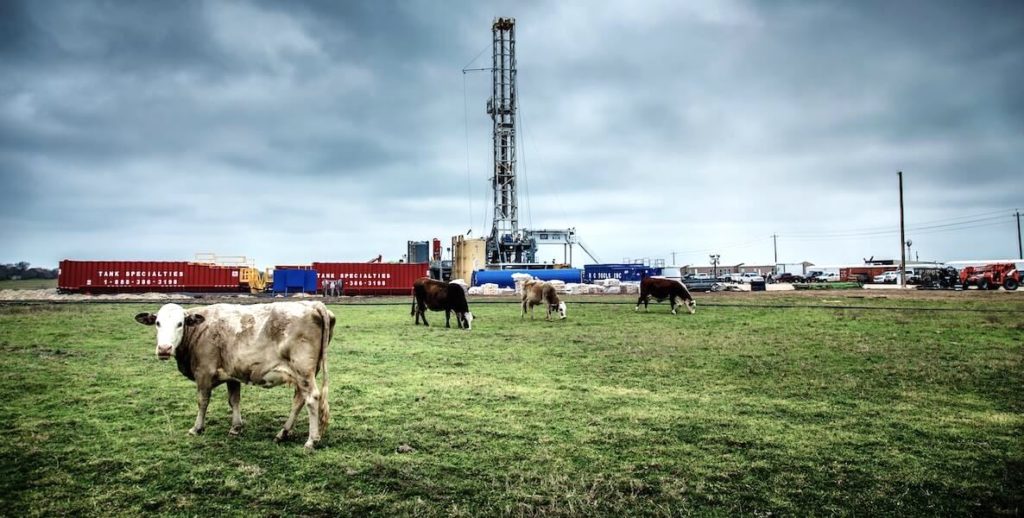After noticing that their new policies primarily benefit corporations that pollute, the Environmental Protection Agency under President Trump has decided to start their own oil and gas company. “It’s the logical next step in capturing the value we create,” noted EPA Director and former coal industry lobbyist Andrew Wheeler.
When questioned about how he thought this new EPA might effectively compete against well-entrenched oil and gas companies, Wheeler’s eyes sparkled with mischievous excitement. “Well, first off, we have privileged access to protected lands,” he stated. Nobody else is allowed to drill there, so the agency’s ability to circumvent the rules gives them a competitive advantage. “Our good friends at the Department of the Interior have demonstrated a consistent willingness to look the other way,” Wheeler continued, “so we’re confident access to selectively protected lands can be part of our business plan.”
Industry pundits expect temporarily superfluous, surprisingly available scientists can learn to drive oil rigs and operate tricky machinery.
While Wheeler acknowledged upgrading the productivity of these areas would have been easier under Trump’s former Secretary of the Interior Ryan Zinke, who was pushing an agenda of more drilling, “dirty” coal mining, weakening protections, suppressing climate science and waging an all-out war on wildlife, current Secretary David Bernhardt would do just fine with his willingness to give illegal access to former clients.
Further, deep cuts at the agency which previously seemed imprudent in decimating environmental research at the moment of an impending existential crisis now appear prescient, freeing up resources for job retraining. Industry pundits expect temporarily superfluous, surprisingly available scientists can learn to drive oil rigs and operate tricky machinery. Wheeler noted the immediate economic impact of releasing policy from the yoke of science in this context, as reassignment will deliver an immediate salary increase for all but the most senior scientists while still affording the opportunity to help the environment by staying focused on safety to avoid harmful accidents.
Wheeler and the Trump administration don’t see this development as inconsistent with the history of the agency, particularly the recent history under Trump. To date under the current administration, the EPA has ceased protections for wetlands and streams, removed limits on toxic pollution from coal-fired power plants, paved the way for contamination of groundwater with toxic coal ash, gutted rules protecting clean air and reducing carbon emissions, scoffed at the Mercury and Air Toxics Standards, dismissing both the billions of dollars of savings in health costs and thousands of lives saved, eased up on regulating greenhouse gas emissions, delayed the ‘Smog Rule’ which also would have delivered billions of dollars of health savings annually, walked away from cutting methane emissions, refused to ban pesticides linked to brain damage, pesticides and death, and are apparently just getting started.
When accused of systematically dismantling the very protections citizens expected from the EPA, Wheeler noted that with all the EPA researchers using scientific arguments to resist these changes, it wasn’t as easy as it looked. He countered that he does, in fact, care about the environment. “The oil and natural gas under those trees is beautiful. It’s dark, fragrant and creamy like good coffee. And it’s all natural. How can something natural hurt the environment? They even call it natural gas. If it was artificial like a metal wind turbine, sure I’d be worried about harming people,” Wheeler asserted.
“The oil and natural gas under those trees is beautiful. It’s dark, fragrant and creamy like good coffee. And it’s all natural. How can something natural hurt the environment?,” Wheeler asserted.
Pres. Trump’s primary concern according to inside sources has been the possibility of offending his friends in the Saudi royal family. “I don’t want them to think we’re competing with their oil businesses,” Trump reportedly said, “especially after seeing what they did to Khashoggi and given strong Saudi guest volume in my hotels.”
Roy Rosin is the Chief Innovation Officer at Penn Medicine, where he works with thought leaders from across the health system to turn ideas into measurable impact in the areas of health outcomes, patient experience and new revenue streams. This story is satire. The EPA, in fact, has not changed its name.

